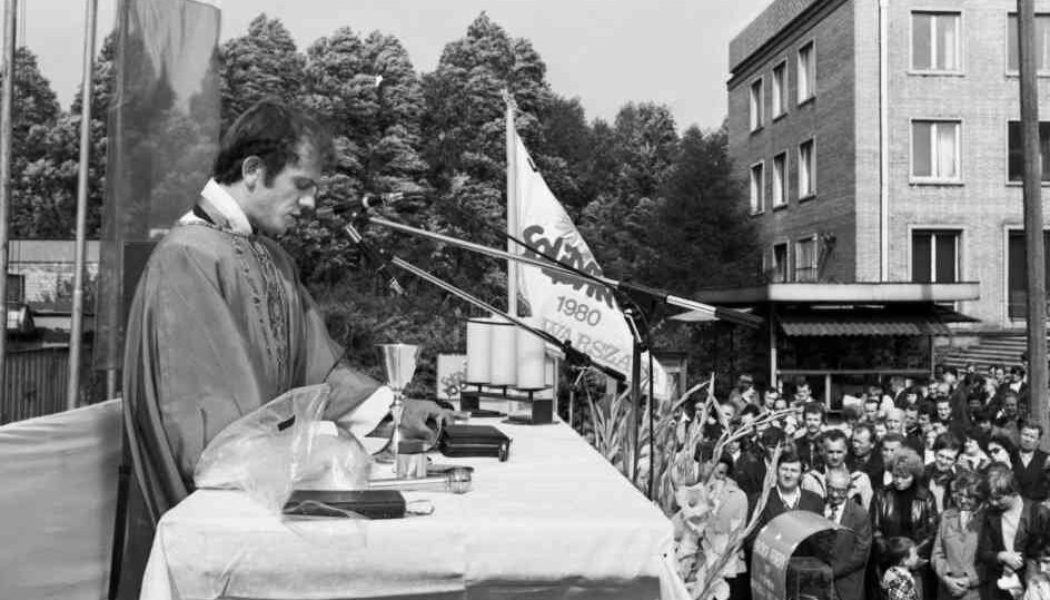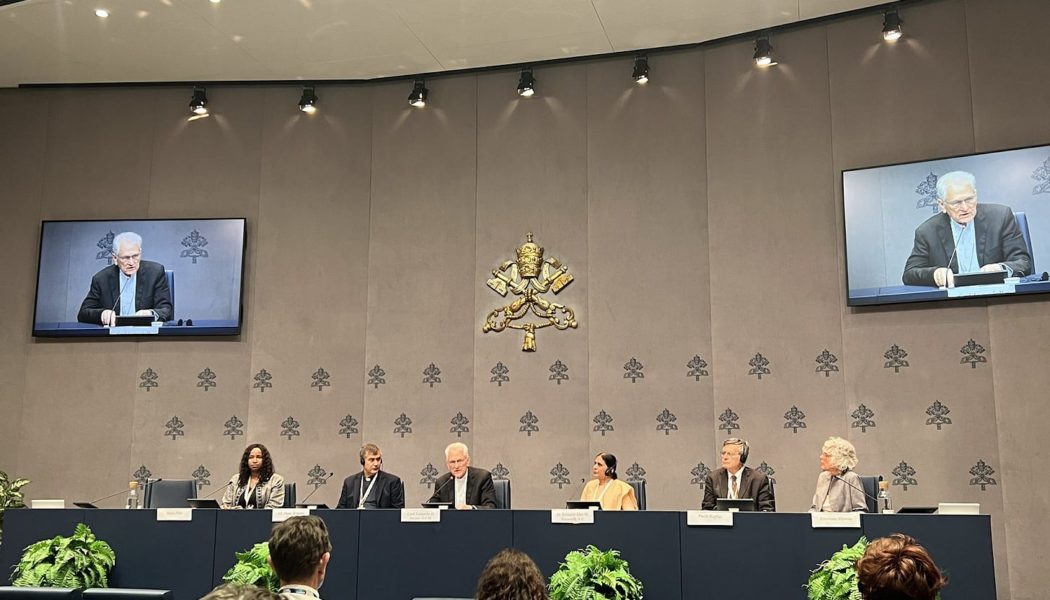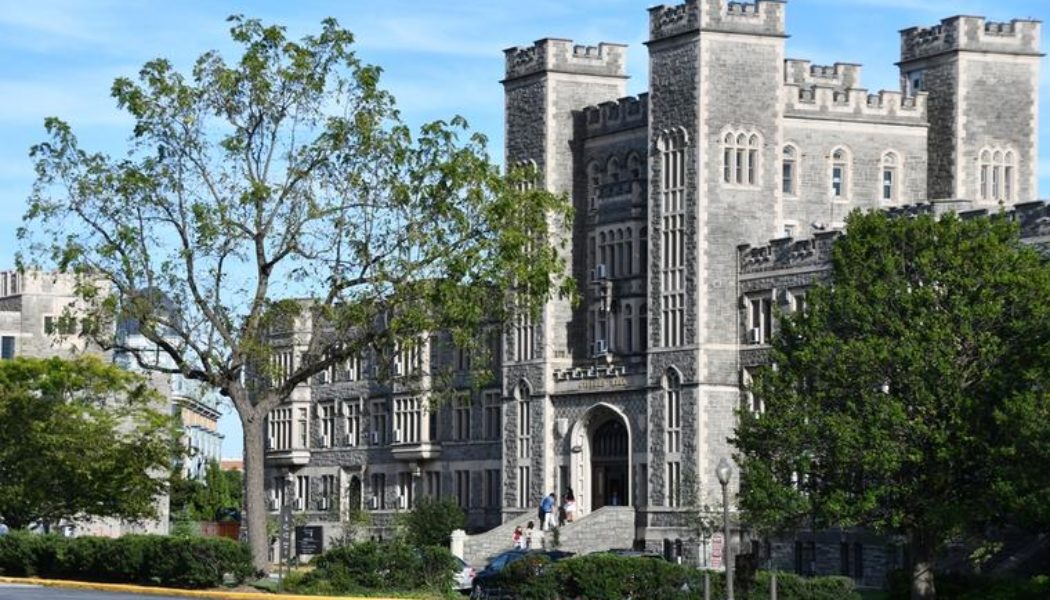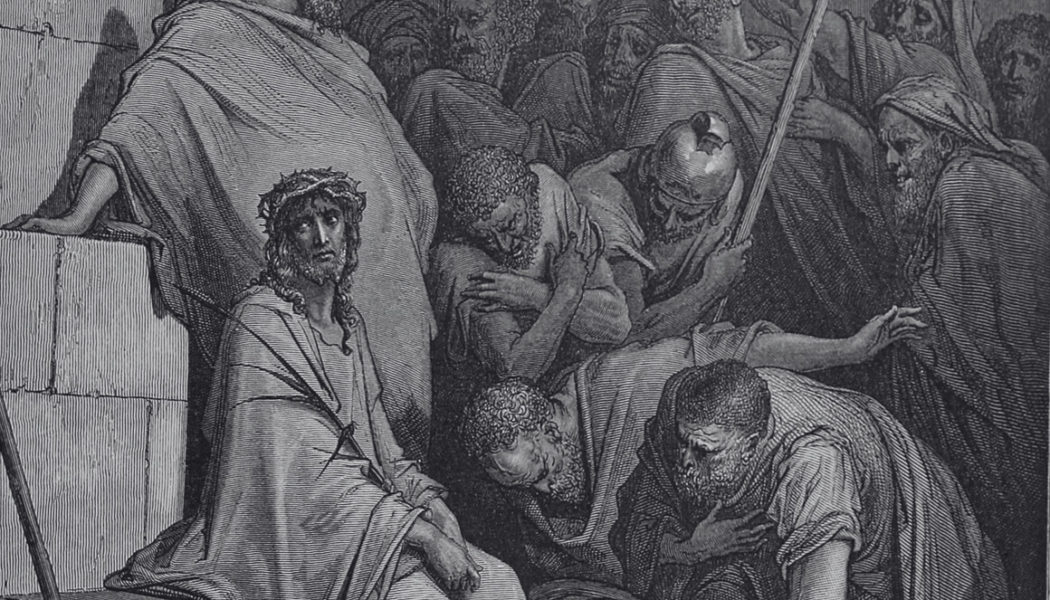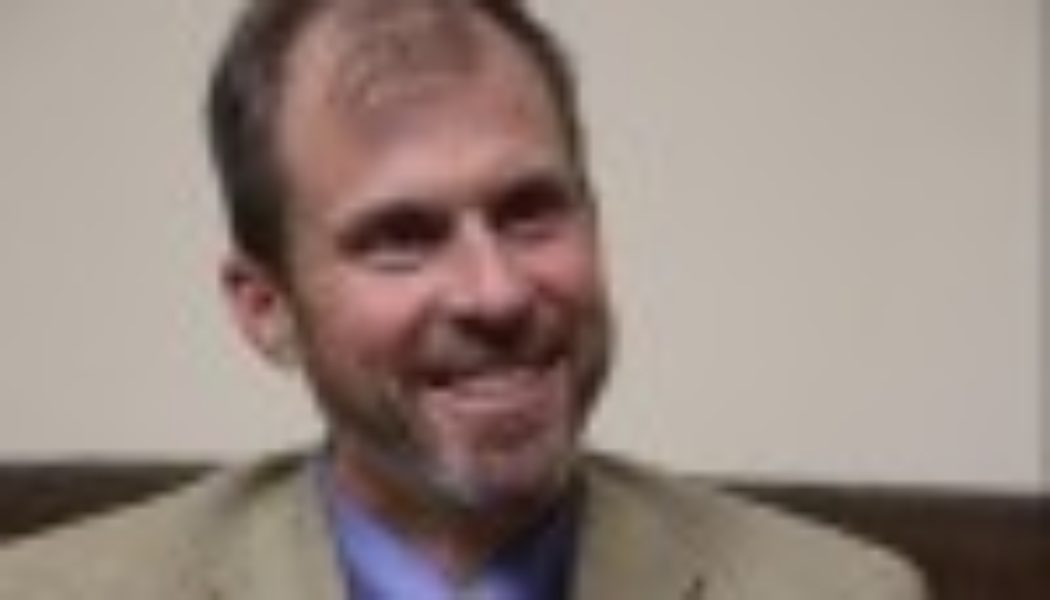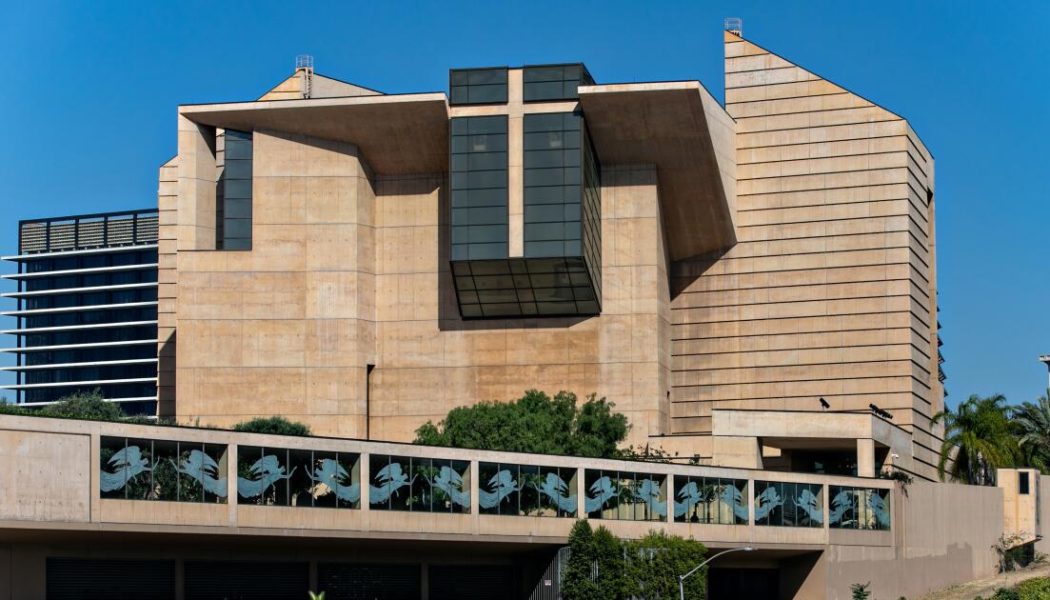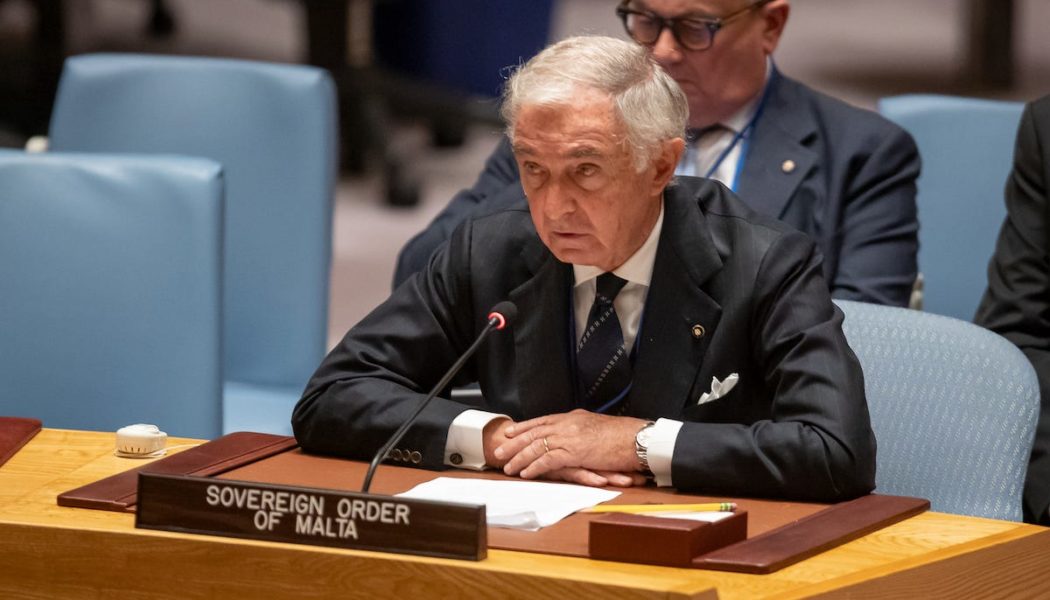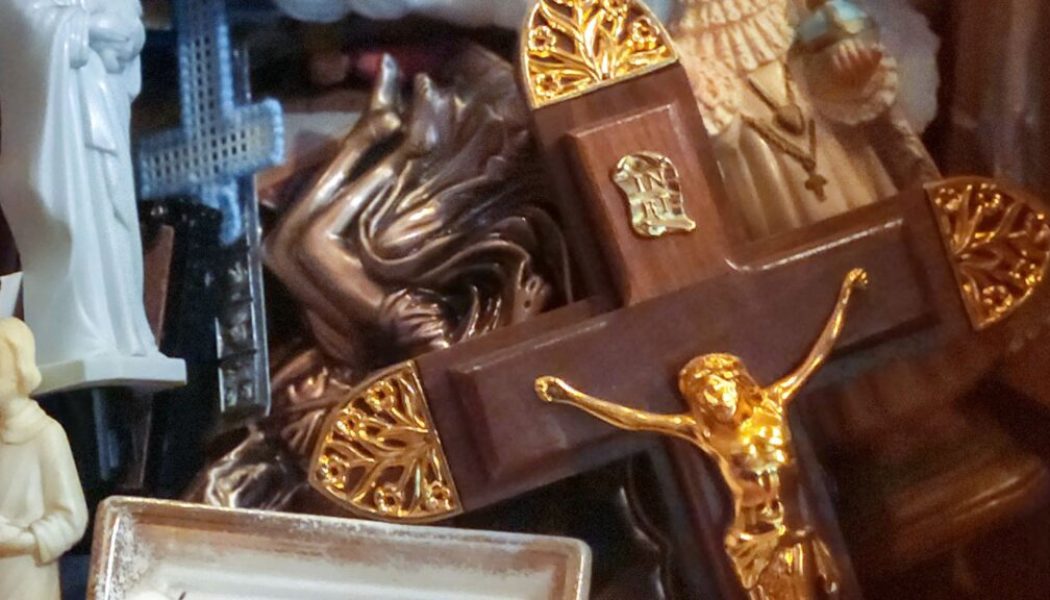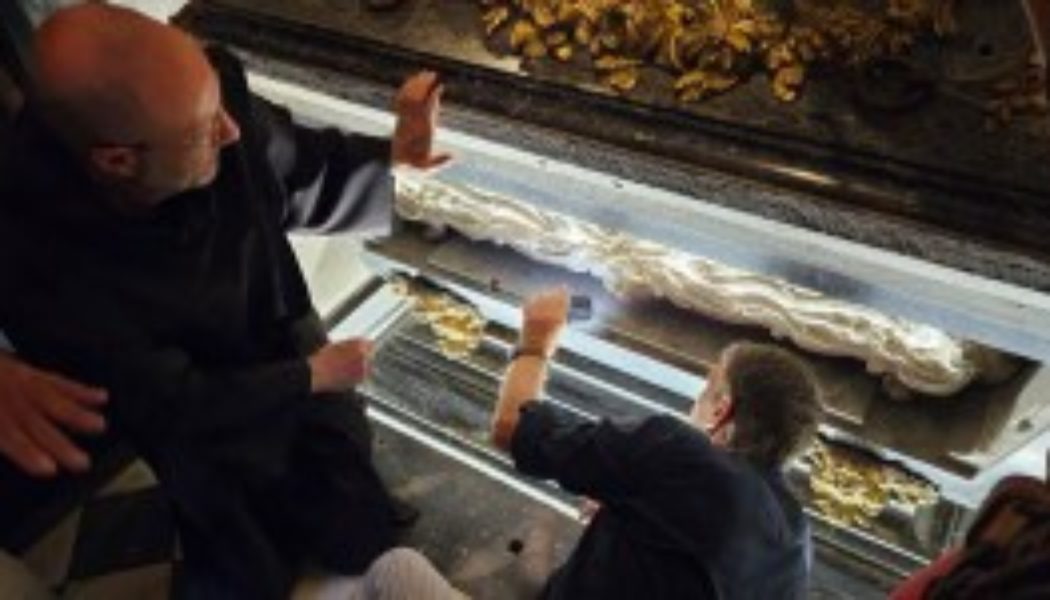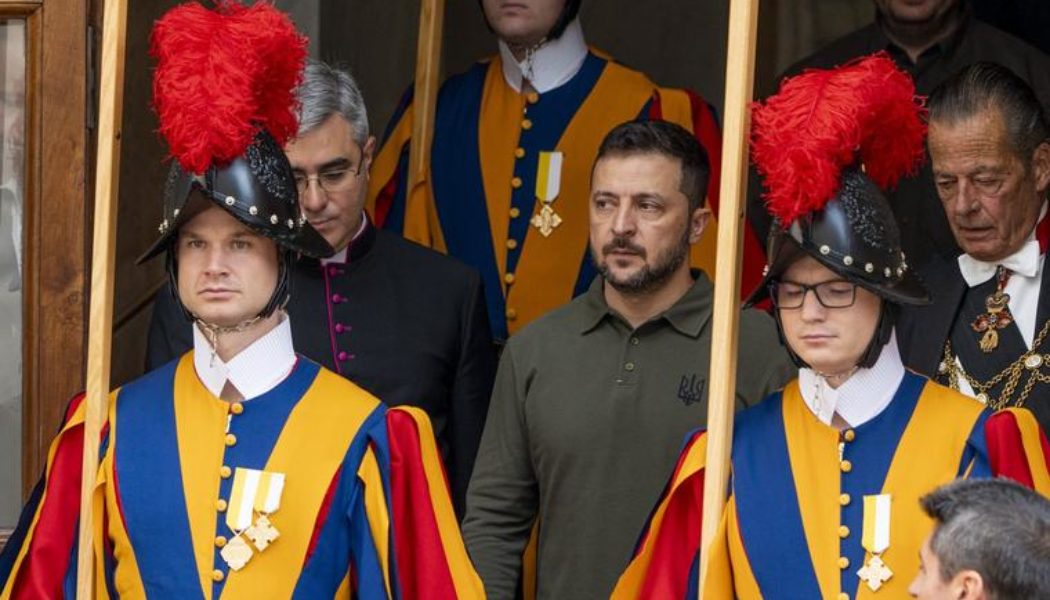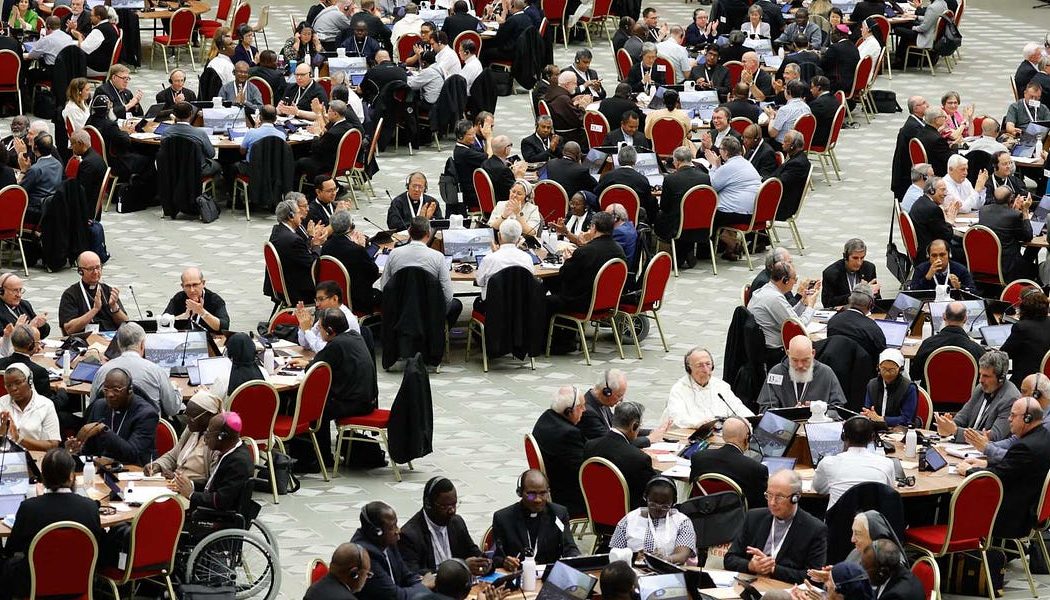Blog
40 Years Later, Poland’s Catholics Remember Their Heroic ‘Solidarity Martyr’ — Blessed Jerzy Popieluszko…
(OSV News) — As 40 years have passed since the murder of Blessed Jerzy Popieluszko, one of their church’s most famous priests, Polish Catholics are urging people everywhere to revisit and learn from his heroic testimony. “He was treated as a criminal and killed by state agents for daring to proclaim the Gospel,” explained Father Jan Sochon, a childhood friend. “Though times have changed, some of the mechanisms used to rule over people are still in place today. This is why he remains influential, a sign of the times summoning us to reflect and change,” he said. The Warsaw-based priest spoke ahead of 40th anniversary commemorations of the death of Blessed Popieluszko (1947-1984), chaplain of Poland’s Solidarity union — the first independent trade union in the Soviet bloc — who was brutally m...
Sifting the Synod for the Divinity…
By Dr. Jeff Mirus ( bio – articles – email ) | Oct 10, 2024 Having lived through quite a few synods over the past two generations, most of us are aware that, like all human meetings, they are opportunities for people to try to win approval for their own particular ideas of the best way forward in the situation faced by the institution in question, in this case the Church. And just as with most meetings, the individual participants have a variety of attitudes toward the past image and past policies of the organization they purport to represent. The result is that despite the actual necessity and even the (relatively rare) benefits of formalized meetings, they often spark the formation of factions, exacerbate conflicts, and waste more time in their process than they save later th...
Live From Rome, It’s Synodality!…
Live from Rome, it’s synodality! Skip to content Pillar subscribers can listen to this Pillar Post here: The Pillar TL;DR Hey everybody, Greetings from the Vatican press office, where I arrived this morning to cover the next 10 days of the Vatican’s second session of the final stage synod on synodality. 😉 The Pillar’s Edgar Beltran has been here for the first fortnight of this month’s synod on synodality, and when I depart next week, Ed. Condon will be here to cover the final few days. I’ve got the middle stretch, in which — as one synod participant has put it to me already — “nothing’s left but the elephants and the brooms.” An October 15 press conference at the synod on synodality. Credit: JD Flynn/The Pillar By this, I think my colorful correspondent meant that much of the talking has a...
Are Catholic Universities a Good Investment?
COMMENTARY: A university should be a place where students can pursue ultimate truths about God and the human person, not merely a place where they learn skills to help with employment. Over milkshakes and burgers, one of my student’s fathers said to me that he could not thank me enough for the kind of formation his daughter was getting in the classics and in the faith at my university. He said we were providing her something that he himself could not have provided, and he even suggested that we run a summer program for parents at our satellite campus in Rome. Did this father make a prudent choice for his daughter? After all, many people whose judgment I trust counsel their kids to forgo Catholic universities and instead attend subsidized state institutions. “The No. 1 rule,” they routinely...
Why Does the Bible Never Condemn Slavery as an Institution?
By Clement Harrold October 11, 2024 Many skeptics and even some Christians struggle with the idea that the Bible not only fails to condemn slavery, but actually seems to justify its existence in places. What are we to make of the Mosaic Law’s detailed prescriptions for how slaves are to be treated, for example? And how about St. Paul’s injunction to slaves to “obey in everything those who are your earthly masters” (Col 3:22)? If the Bible is the inspired Word of God, how can it be so complicit in something as evil as slavery? There are a number of points worth making here. At a basic level, we need to remind ourselves that the kinds of slavery sanctioned by Moses in the Old Testament are nothing close to the chattel slavery which plagued the New World following the discovery of the America...
Touching Death: Mourning Physically through Burial…
How we bury our dead is a crucial part of life. We have gotten away from the wise practices of our ancestors. If how they did burial was largely out of necessity, we might still discover just how important those practices are—how much we really need them today. And we can choose them, at least some of them, again. The day we buried my father some years ago was one of the most important days of my life. Here is a brief retelling of it and a few reflections that it occasioned. I hope many others might receive, or give, such a gift. It was all about the earth. Opening it, placing something it, and closing it. Like planting a seed. We started with the assumption that the more we did with our own hands the better. We knew that my father had enough hearty pall-bearers that we could actually carr...
Archdiocese of Los Angeles Payouts for Clergy Abuse Top $1.5 Billion With New Record Settlement…
In what could be the closing chapter in a landmark legal battle, the Archdiocese of Los Angeles has agreed to pay $880 million to victims of clergy sexual abuse dating back decades in the largest settlement involving the Catholic Church. Attorneys for 1,353 people who allege that they suffered horrific abuse at the hands of local Catholic priests reached the settlement after months of negotiations with the archdiocese. The agreement caps a quarter-century of litigation against the most populous archdiocese in the United States. The settlement leaves only a few lawsuits pending against the church in Los Angeles, attorneys for the victims say. Advertisement The archdiocese had previously paid $740 million to victims in various settlements and had pledged to better protect its church members,...
Neutrality and Nobility: How the Order of Malta Runs Its Diplomatic Service…
Neutrality and Nobility: How the Order of Malta runs its diplomatic service Skip to content The Sovereign Military Order of Malta has, for 900 years, existed in a unique legal space. Founded as a hospitaller order of noble knights during the middle ages, it eventually found itself as the sovereign rulers of various territories, including the islands of Rhoades and of Malta, finally losing control of its namesake territory during the Napoleonic Wars. HE Riccardo Paternò di Montecupo, Grand Chancellor of the Sovereign Military Order of Malta, at the United Nations. Image via Order of Malta. By the 19th century, the knights, now headquartered in Italy, were still recognized by various European powers – including the papacy – as a sovereign entity, albeit without a territory to gov...
Catholic’s Ministry Is Collecting Used Religious Objects to Give to Churches in Need of Them…
ITHACA, N.Y. (OSV News) — While cleaning out your house or a loved one’s, you come across a batch of rosaries, crucifixes and other religious artifacts. You hesitate to throw them out, recoiling at the thought of treating such spiritually significant items as mere garbage. Yet you may not wish to keep them for yourself. What to do? One popular option — as Erika Lindsell knows from experience — is to leave the goods at the local parish. Lindsell, the administrative assistant at Immaculate Conception in Ithaca, has often found boxes full of religious objects on the office doorstep upon arriving for work. “People leave stuff there figuring the church will know what to do with it,” Lindsell remarked. The rub, she said, is that it’s not so simple for parishes to place the objects, especially if...
New Study of St. Teresa of Avila’s Relics Reveals ‘Incredible’ Initial Findings …
Examiners: St. Teresa of Avila must have lived with a lot of pain As Aleteia reported earlier this year, the largest part of the remains of St. Teresa of Avila have been exhumed for analysis and study. The saint’s body remains in the state that it was in the last time it was exhumed, in the early 1900s. Initial findings from these analyses have been reported in an interview with two radiographers, José Antonio Ruiz de Alegría and Fernando de Pablo Arranz, in El Debate. They noted that the last time the remains were exhumed in 1914, Pope Pius X’s subsequent death impeded plans for an in-depth study. Now, 110 years later, technology makes us capable of discovering much that had been lost to history. The examiners describe her body as “mummified” more than “literally incorrupt.” Something inc...
The Vatican Pushes for Peace as the War in Ukraine Approaches Its Third Winter…
As the brutal fighting in Ukraine approaches its third winter with no end in sight, the Vatican has once again dispatched Italian Cardinal Matteo Maria Zuppi to push for peace. Cardinal Zuppi, who is Pope Francis’ special envoy to Ukraine, embarked on his second visit to Moscow on Monday, where he will “assess further efforts to facilitate the reunification of Ukrainian children with their families and the exchange of prisoners, with a view to achieving the much-hoped-for peace,” according to Matteo Bruni, director of the Holy See Press Office. One million people have now either died or been injured as result of the conflict in Ukraine, according to recent estimates, including 200,000 dead Russians and 80,000 dead Ukrainians. Ukrainian infrastructure has also been severely damaged, as long...
The Third Crisis of the Church: What It Means and 5 Things You Can Do…
The Cambridge historian Richard Rex has noted that the first great crisis in Christianity was over the nature of the Trinity, especially over the nature of Christ, hence the early Christological heresies. The second great crisis, associated with the Reformation, was over the nature of the Church. This entailed the Protestant attack on sacramentality and the sacred hierarchy. The third great crisis, Rex observes, the one we are enduring today, is over the nature of the human person. Here the concrete issues revolve around the fact of sexual difference. Does the difference between masculinity and femininity have any theological significance? This overview of the history of ecclesial crises is very perceptive but one might add that within the Catholic Church today the crisis is not confined t...
